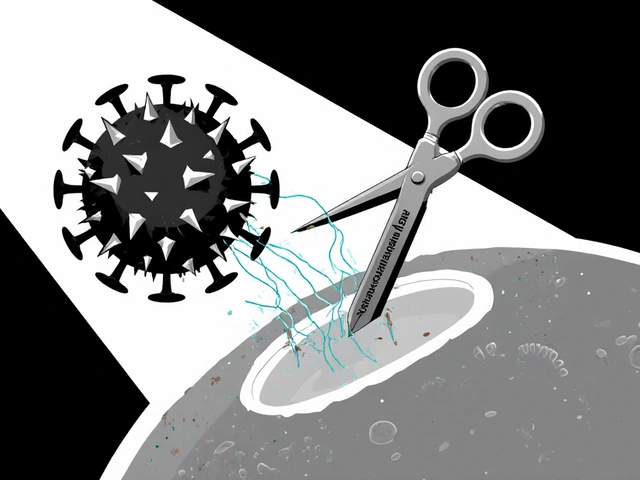Levothyroxine: What It Is and Why You Might Need It
Levothyroxine is a synthetic form of the hormone thyroxine (T4) that your thyroid normally makes. If your thyroid is under‑active, doctors prescribe levothyroxine to bring hormone levels back to normal. Most people take it for hypothyroidism, but it’s also used after thyroid surgery or to treat certain goiters. The drug is cheap, widely available, and usually taken once a day.
How to Take Levothyroxine Correctly
The simplest rule is to take it on an empty stomach, first thing in the morning, with a full glass of water. Wait at least 30‑60 minutes before eating or drinking anything besides water. Food, especially coffee, soy, and fiber, can lower the amount your body absorbs. If you forget a dose, take it as soon as you remember—unless it’s close to your next dose, then just skip the missed one and keep to your regular schedule.
Stick to the same brand and strength. Even tiny differences in dose can change how you feel. If your doctor changes the formula, they’ll usually monitor your blood tests for a few weeks to make sure levels stay steady. Keep a list of any other meds you’re on, because many drugs—like calcium supplements, iron, and certain cholesterol pills—can interfere with levothyroxine absorption. Separate them by at least four hours.
Managing Side Effects and Interactions
Most people feel better after a few weeks, but a few experience side effects. Common ones include nervousness, rapid heartbeat, sweating, or trouble sleeping. These signs often mean the dose is too high. If you notice them, call your doctor; they may lower the dose and re‑check your thyroid levels.
Less common problems are hair loss, weight changes, or upset stomach. Again, these usually settle once the dose is adjusted. Never stop taking levothyroxine abruptly—your body can’t make thyroid hormone on its own and you could feel worse fast.
Interactions are a big deal. Antacids, multivitamins with iron or calcium, and some cholesterol medicines can cut absorption by up to 50 %. Always tell your doctor about over‑the‑counter products, herbal supplements, and even diet changes. A quick blood test can catch issues before they become noticeable.
Pregnant women need special attention. Levothyroxine doses often have to increase during pregnancy because the body produces more thyroid‑binding proteins. Your doctor will check your levels regularly to keep both you and the baby safe.
In short, levothyroxine works best when you take it consistently, on an empty stomach, and away from interfering substances. Keep track of how you feel, report any weird symptoms, and attend follow‑up blood tests. With the right routine, levothyroxine can make a huge difference in energy, mood, and overall health.
Levothyroxine and Alcohol: Is It Safe to Mix the Two?
Hey there, I've been diving into interesting stuff lately. This piece, for instance, is all about the effect of mixing Levothyroxine, a thyroid medication, with alcohol. Is it safe? What are the potential side effects, if any? I did some research to answer these questions for those who might be courting this curiosity. Stick around if you're also looking to unravel this mystery, and let's learn together!






